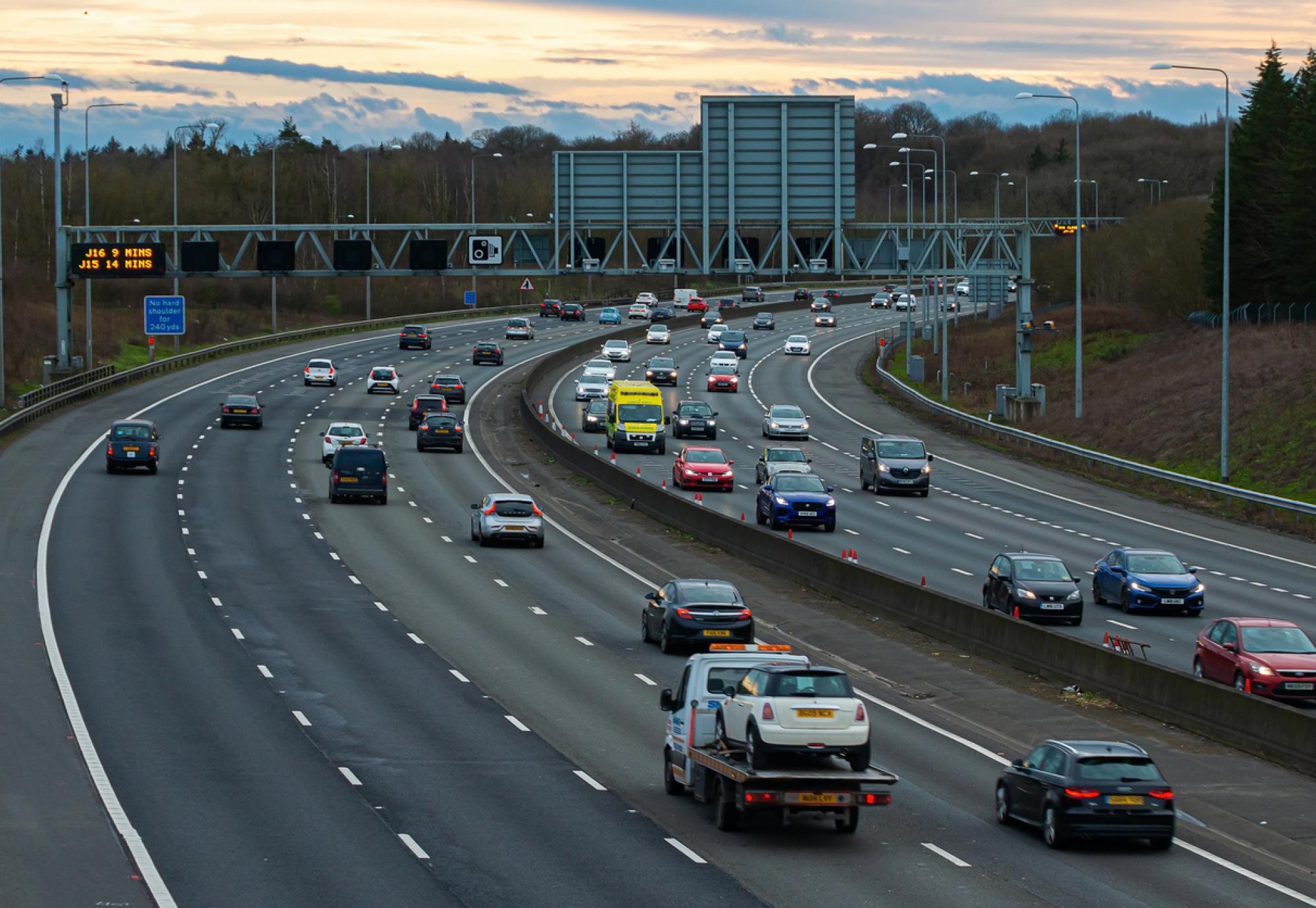The UK Government has confirmed that it is scrapping all plans for the delivery of new smart motorways, following the commitments the Prime Minister made last summer.
Smart motorways were first introduced in 2006 and are a measure to manage traffic and increase capacity. This utilises variable speed limits and occasional hard shoulder running with the aim of reducing the cost of increasing capacity on the motorways and improving the reliability of journey times to lower vehicle emissions.
It is estimated that the plans to construct future smart motorways would accrue more than £1 billion in cost, meaning that the cancellation of the planned projects is expected to allow the government more time to judge the public’s confidence in smart motorways across a longer time period.
Prime Minister Rishi Sunak said:
“All drivers deserve to have confidence in the roads they use to get around the country.
“That’s why last year I pledged to stop the building of all new smart motorways, and today I’m making good on that promise.
“Many people across the country rely on driving to get to work, take their children to school and go about their daily lives and I want them to be able to do so with full confidence that the roads they drive on are safe.”
Projects for 11 new smart motorways were paused from the second Road Investment Strategy (2020-2025), whilst three were being planed for the third Road Investment Strategy, which covers 2025-2030. These are to be removed from all government road-building plans due to the financial pressures and public confidence issues mentioned before.
Considering there are some smart motorways that have been completed, the government will continue to invest £900 million to ensure they see safety improvements, including the installation of 150 additional emergency areas and improvements to the performance of technology that detects when there is a vehicle stopped.
Mark Harper, Transport Secretary, added:
“We want the public to know that this government is listening to their concerns.
“Today’s announcement means no new smart motorways will be built, recognising the lack of public confidence felt by drivers and the cost pressures due to inflation.”
The government has confirmed that, whilst there will be no new stretches of smart motorway, plans to complete the M56 – between junction six and eight – and the M6 – between junction 21a and 26 – will go ahead due to them being more 75% completed.
The funding that will be put into the improvement of safety of the already completed smart motorways is just another way that the government is funding highway improvements, with £30 million worth of funding being allocated in January for decarbonisation projects on highways around the United Kingdom.



















